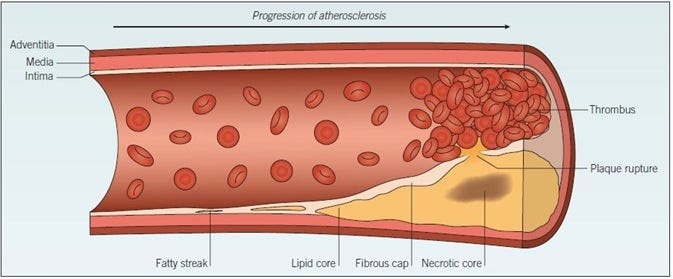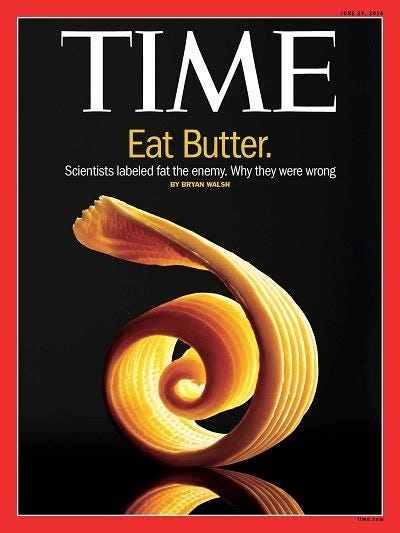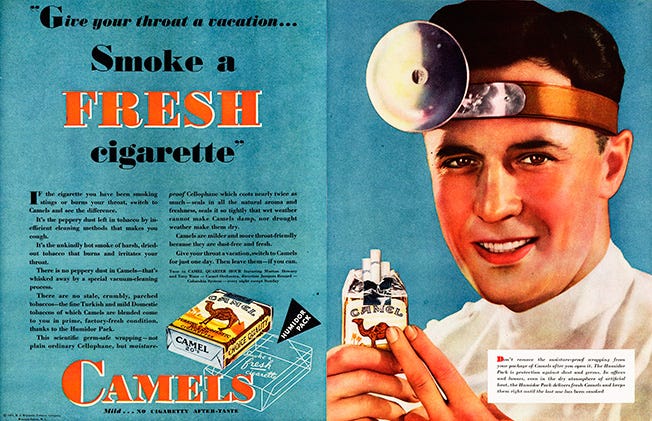Of course statins don't work!
A narrow waist is also a marker of health: though wearing a corset will not improve longevity much either.
Do statins work?
Artificially lowering cholesterol by taking drugs that block liver enzymes that make cholesterol is like wearing a corset to narrow the waist, and not seeing any benefit.
The alleged benefits of statins to atherosclerosis, CVD and death are around a 0.6% reduction in all cause death (or event rate reduction of 2/1000 person years), 0.3% benefit in both CVD and non-CVD death and a 0.2% reduction in stroke. This means the number needed to treat to prevent one death is allegedly about 166. This is from the latest research over 4 years which was not placebo controlled and may have confounding improvements in lifestyle in the statin group.
Taking statins that destroy the ability of the body to make and balance its own cholesterol, which is found in cell membranes and the brain, may well cause dementia, muscle problems, loss of libido, neuropathy and many other issues. Wearing a corset makes it very difficult to breathe.
However, this does not mean that exposure to elevated levels of cholesterol and saturated fat in the diet, or having a fat belly are actually good for you.
Is cholesterol good or bad?
What about cross-sectional meta-analysis studies on artificially lowered cholesterol that do not show correlation between cholesterol levels and amount of atherosclerosis? For starters, the studies that did show correlation were excluded. 16 out of the 18 studies included used statins or other drugs to artificially lower cholesterol levels in people who continued with their unhealthy lifestyles. A correlation between artificially lowered cholesterol level and atherosclerosis would not be expected. Why is that?
This is because the participants did not gain the actual benefits that a low cholesterol level indicates: a diet low in animal products and junk food. They didn’t gain the benefit of low intake of oxidised cholesterol (found in meat and dairy) which can form crystals which pierce the whitehead-like plagues (it seems very unlikely that the cholesterol found at sites of bursting and blood clots is in fact healing a tear in the artery! Perhaps oil found on the skin is also the healing and not the cause of blocked pores and spots?). Nor did they avoid inflammatory substances such as animal protein and or the lipopolysaccharides from the cell walls of microbes found in the guts of dead animals. Nor did they gain the benefit from anti-inflammatory substances such as nitrates in leafy greens.
Blocking cholesterol production doesn’t gain the benefit of fibre which may prevent reabsorption of bile acids and steroid hormones. Fibre also nourishes symbiotic bacteria which in turn nourish and protect colonocytes and produce satiating fatty acids. The balance of the microbiome affects all aspects of health. Only a naturally low cholesterol, whole food plant based diet provides these benefits.
In any case, the meta-analysis consisted of only short term studies, of a few years or less, and atherosclerosis builds up over decades.
Many studies do not adjust for those with statin lowered cholesterol, which of course will increase morbidity and mortality itself. What about studies of people not on statins that show negative aspects of low cholesterol? The Framingham study answered it's own question
They showed an 11% increase in all cause mortality and a 14% increase in CVD mortality for every 1 mg/dL drop in cholesterol levels. ‘Under age 50 years these data suggest that having a very low cholesterol level improves longevity. However after age 50 years the association of mortality with cholesterol values is confounded by people whose cholesterol levels are falling--perhaps due to diseases predisposing to death.’
Sick people may have low cholesterol, the low cholesterol does not make them sick. For example, certain cancers appear to feed on cholesterol. For those under 50 and less likely to be ill, low cholesterol significantly improved longevity.
The fact that stents placed in large vessels in people at risk of heart attack do not improve outcomes when they continue with their unhealthy diets, also does not mean that occlusion of blood vessels is not harmful. People who have stents carry on with unhealthy lifestyles and will already have atherosclerosis in many vessels not just the ‘widow maker’ ones.
What about centenarians who appear to have higher than ‘recommended’ LDL and total cholesterol, despite not having had CVD? Rather than finding out that dietary cholesterol and saturated animal fat is not a risk factor for CVD this paper found that changes in lipid profiles were adaptive in the elderly.
‘A major consequence of this reshaping is that changes in the serum level of protein, lipids, and lipoproteins that are considered risk factors for atherosclerotic vascular diseases in young people may lose their biological significance and assume a different, unknown role with advanced age. Such a reshaping can have far-reaching consequences for laboratory standard values and, when possible, in therapeutic intervention for the elderly. The results presented here are in line with our general hypothesis that a continuous remodeling develops with time as a result of the continuous adaptation to changes occurring in the body with age in response to internal and external damaging agents.’
Remarkably, one-quarter of the centenarians had high Lp(a) serum levels even though they never suffered from atherosclerosis-related diseases. At variance with young and aged people, centenarians with high Lp(a) serum levels also had high plasma concentrations of the proinflammatory cytokine IL-6, suggesting that genetic control of the Lp(a) serum level may attenuate (diminish) with age and that environmental factors such as chronic subclinical inflammatory processes may play a role.’
The body has high cholesterol at age 100 because it wants to. And no, you don’t need to consume either more cholesterol or more saturated fat, the body makes all the cholesterol it needs.
Another common trope are the population studies of Western societies in the 20th century showing that allegedly lower fat consumption did not correlate with lower CVD outcomes. However, at no time have Western societies had a low saturated fat diet: government campaigns are well known to be ineffective so the low-fat drive hasn’t resulted in people actually having lower fat diets. The addition of sugar to ‘low-fat’ (actually still high fat) processed food has not helped. Refined carbs such as sugar, white flour and white rice, though they lower LDL cholesterol, reduce HDL, increase triglycerides relative to saturated fat, increase apo A lipoprotein relative to a higher protein diet and they contribute to obesity. Refined carbs aren’t much better than high fat diets. No one is saying that they are. They both elevate the risk for CVD. A whole food plant based diet knocks them both out of the water. The China Study (never debunked in peer review, only by industry voices in the media) showed that rural, mainly plant based, Chinese with cholesterol naturally below 170 mg/dL (4.4) and sometimes as low as 80 mg/dL (2) had 17 times lower CVD than the US and 5 times lower breast cancer.
Studies involving plant based diets vs meat diets often load the plant based ones with coconut oil, palm oil and sweetened biscuits and unloaded the meat diets by removing dairy and other meats to the one in question to show no difference (or even a benefit for the meat diet) in inflammation, cholesterol and CVD.
Despite the best effects of the dairy industry: butter is not back, though neither is margarine or junk.
What about the often quoted meta-analyses showing no association between saturated fat intake and CVD outcomes?
The famous 2010 Siri-Taurino a meta-analysis led by Ronald M Kraus (a cardiologist funded by the US Dairy council) compared people on a high fat diet with people on an even higher fat diet, relied on patient recall and some also controlled for cholesterol levels (which obscured the impact of cholesterol on CVD). Once a certain level of high saturated fat and cholesterol is reached there will be little difference in CVD outcomes and mortality.
The 2014 Chowdhury study did not show that saturated fat was vindicated, they showed that replacing it with unhealthy fish or fish oil supplements, refined carbs and trans-fats (of which there is no safe dose) did not improve CVD outcomes by much. Remember, those who replaced saturated fat with fatty fish or processed food where still eating above the recommended intake of saturated fat, it was not a low fat diet, therefore individual correlation between fatty acids and CVD outcomes would not be expected. Astrup (a member of the Communications and Scientific Advisory Board of The Global Dairy Platform) found that, for those on a Western diet, replacing 1% of calories from saturated with poly unsaturated fat reduced CVD by 2-3% but still manages to conclude ‘the effect of saturated fats from cheese on blood lipids and CHD may be counterbalanced by the content of protein, calcium, or other components in cheese’! The evidence that cheese is somehow protective comes from no evidence of harm particularly for dairy (if you control for cholesterol levels and fat intake and ignore studies that do show an increased risk) and from claims that low-fat milk (if you ignore prostate cancer, acid load to kidneys and T1 diabetes etc) is part of a ‘healthy diet’, though it may well be a healthier despite it not because of it.
A recent meta-analysis also showed that a small bit of cheese (~40gms/day: the benefit disappears at higher consumption) was slightly (~2-3% absolute reduction) protective against CVD death, though not against all cause death. Authors claimed no conflict of interest apart from working for Yili, China’s largest dairy producer. The observational studies, relying on recall, focused on Europe where cheese is more expensive and consumption is associated with higher socio-economic status, better access to health care, higher fresh fruit and veg consumption (which were not adjusted for) and therefore lower CVD risk.
Dr. Francesca Crowe, one of the authors of the Chowdhury study said ‘The best available evidence shows that saturated fat affects blood cholesterol levels, which is an important risk factor for heart disease. Therefore, current guidelines should still recommend that people minimise their intake of saturated fat.’
The slightly lower, though still large, number of heart attacks for Westerners on high fat diets versus those on higher fat diets does not compare with the 17 times less heart attacks of those consuming actual low fat diets. Don’t we want 17 times less CVD and 5 times less breast cancer, rather than being fooled with these deliberately misleading studies trying to pit unhealthy saturated fat against unhealthy fish, supplements or processed foods?
Governments support the dairy, meat, fish and pharma industries.
Perhaps pharma does not want to prevent CVD? Via the NHS the tax payer currently gives pharma about £500 million per year for useless, harmful statin drugs. In the US: the sugar, meat and diary industries are propped up by the government by $billions a year. It’s like they want to keep us fat, sick and on drugs.
The evidence strongly suggests that a slim waist and low cholesterol levels are indicators of health, though wearing corsets and repressing cholesterol production with toxic drugs is contra-indicated. The actual benefits of low CVD risk from a naturally slim waist and low serum cholesterol are seen in people following diets low in animal products and high in fruit, vegetables, nuts and legumes. The evidence is there, despite what you may have heard from consumer front groups or doctors whose research is funded by the animal agriculture industry.
🐒
PS. What about the link between red meat, saturated fat and T2 diabetes?
There are many mechanisms whereby saturated fat, particularly palmitate found in dead flesh, dairy and eggs as well as adipokines coming from belly fat causes the build up of inflammation, oxidation, free radicals, ceramides and diacylglycerols in muscle cells that causes T2 diabetes.
It is well established that it is saturated fat that causes the insulin resistance that leads to T2 diabetes. It is not sugar, though excess sugar in the blood does cause the damage of diabetes. The sugar is in the blood because the diaclygercerols block the mechanism which opens the insulin receptor from the inside of the cell and the sugar can no longer enter.
It is almost impossible to do randomised, placebo controlled studies, the gold standard of evidence, lasting for more than a few weeks on the effects of diet. This is used by the industry to cast doubt on many well designed, decades long, observational studies involving thousands of people. For example meta-analysis clearly show that increased consumption of meat, particularly red and processed meat is positively associated with increased risk of developing cancer, heart disease and type 2 diabetes. Industry funded front groups claim that the observational form of evidence is weak, and make recommendations for the continued consumption of red and processed meat. These tactics are taken straight out of the tobacco industry playbook.
The powers that be aren’t trying to stop you eating red flesh with their nefarious agenda to take away your rights and your choice.
Clue; we’re still heavily subsidising animal agriculture production with our taxes, it’s still heavily promoted by MSM, the diabetes association in the UK and the NHS recommend a low carb diet https://www.diabetes.co.uk/paleo-keto/history-of-paleo-keto-diet.html and NHS doctors still recommend ‘red meat’ for anaemia and as a source of ‘good quality protein’ in young and old. In January 2024 the Sugar Goddess recommends artery damaging and insulin resistance causing eggs and beef jerky. Yes, they will not spike sugar, but they do cause release of insulin and are not healthy for many reasons.
Not eating dead flesh and eating plants still actually seems to be the subversive, anti-establishment, anti-elite way to go.
Many people have a vested interest in dismissing the research into the link between red meat and T2 diabetes and very much want you to keep eating it so that you keep getting diabetes and are permanently on drugs, for more and more profit, for pharma and animal ag alike.
🐒






We've seen so many bogus studies of late. These drugs don't help anyone but them. I'm just figuring out what works for me, shifting a little as I tweak things here and there. I spent a few years 85% vegan, but then meat and fish called me back, as well as butter and whole-fat dairy for the first time since childhood. I don't feel right unless fruit and veg are the bulk of my intake, but I'm not fussing with any particular diets/foods/solutions any more. The system has maxxed me out.
Thanks so much for this bit of common sense. Medicine is tremendously susceptible to these types of logical inversions that rests on a confusion of cause and effect, and even worse when a proxy is used. We are back to the time when increased stork sightings were correlated with an increasing birthrate, and therefore we could prove the storks brought babies. Lots of money being made on pharma products that may improve the numbers bud do nothing for health. All vaporous pursuit of proxies for something else, which we do not understand, if not willfully ignore.